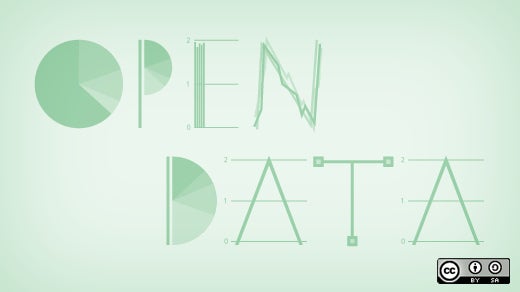At the Open Education Working Group we are interested in all aspects of open education, from Open Education Resources (OERs) and new learning and teaching practices, to open source tools and open licenses.
One fairly new area that is starting to show real traction in opening up education is open education data. By that we are primarily referring to the open data that comes out of education institutions, be they physical or online. Examples include reference data, such as the location of academic institutions; internal data such as staff names, resources available, personnel data, budgets; course data, curriculum data, and learning objectives; and user-generated data such as learning analytics, assessments, performance data, etc.
The connection between data and open education might initially seem tenuous. While open education is fundamentally about removing barriers to education (this could be barriers to entry, or barriers to content or knowledge), and opening up data of any sort clearly fits with this agenda, it is in the raising of potential that open education data has a true role to play. Once we have access to education data and can start to play with it, there is suddenly the potential to see education and its components differently. This new perspective provides us with an opportunity to revolutionise education and make it better. The 'making it better' can take the form of policy change, civil action, or the building of apps to support choices and learning.
Global case studies
In Kenya, the Open Institute used data collected in the Kenya National Examinations Council (KNEC) and the Kenya Open Data Portal to build KCPE Trends, a simple tool designed to visualise various aspects of the Kenyan Certificate of Primary Education. The long-term plan is to deliver targeted interventions to improve subject-level performance in primary schools across the country.
In the UK, the Open Data Institute ran an Open Data Challenge in the area of education. The challenge invited teams to build solutions using available open data to help parents make informed choices about their children's education by either expressing a preference for a school, choosing a subject or other learning priority, or engaging with the child's learning. The winning prototype was Skills Route, a service aimed at young people and designed to show them how they are likely to fare on their preferred course at local schools and further education providers.
In Pakistan, Bahawalpur Service Delivery Unit (BSDU) has built an app that monitors attendance of teachers and students, the information is aggregated online and made publicly accessible. Sharing this information has resulted in better teacher attendance, which in turn has led to improved pupil grades. The app won last year’s Making Voices Count global innovation competition.
There are an increasing number of these open education data stories, and who knows what the future will bring. As the president and co-founder of Open Knowledge wisely said, "The best thing to do with your data will be thought of by someone else."
If you are interested in open education data, you can get involved with the LinkedUp Project, an EU-funded project that aims to push forward the exploitation of the public open data available on the web, in particular by educational institutions.







Comments are closed.